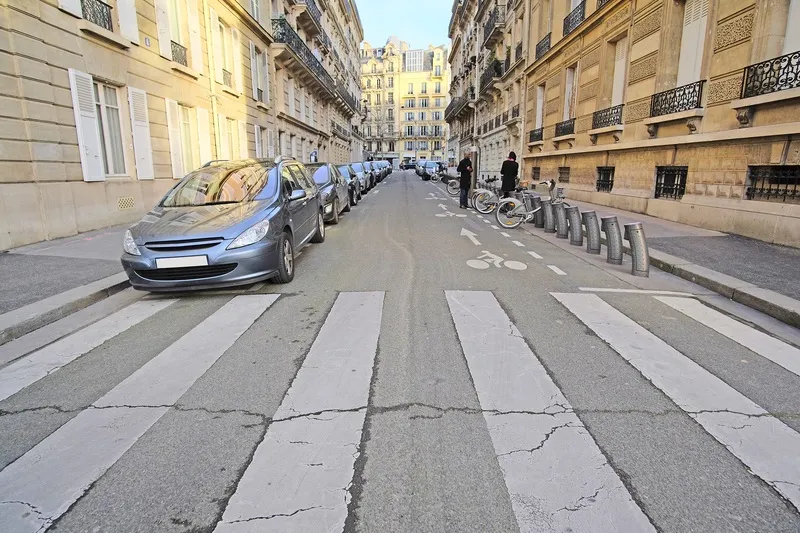
Paris is to remove around half of its 140,000 car parking spaces under a scheme by Socialist party mayor Anne Hidalgo to make the city more pedestrian- and cyclist-friendly.
The figure of 70,000 was announced by David Belliard, deputy mayor with responsibility for transport, mobility and transforming public space.
Residents of the French capital will be consulted on how they want to see the new space used.
Belliard tweeted that it was a priority to "protect the most vulnerable in public space, and in particular pedestrians".
Hidalgo was re-elected for a second term earlier this year, at the height of the Covid-19 pandemic, and the plan is to repurpose the parking places for other uses by the time of the next election.
Supported by Greens such as Belliard, Hidalgo made transport and pollution central to her campaign through the “15-minute city” concept.
This envisages a city where inhabitants can meet all needs – food, work, recreation, culture and so on – within a 15-minute walk or bike ride from home.
Already, Paris has seen more road space given over to bicycles and pedestrians.
During the election, Hidalgo said: “It’s out of the question to think that arriving in the heart of the city by car is any sort of solution.”
In her election night victory speech she told supporters: “You have chosen a Paris that can breathe.”










